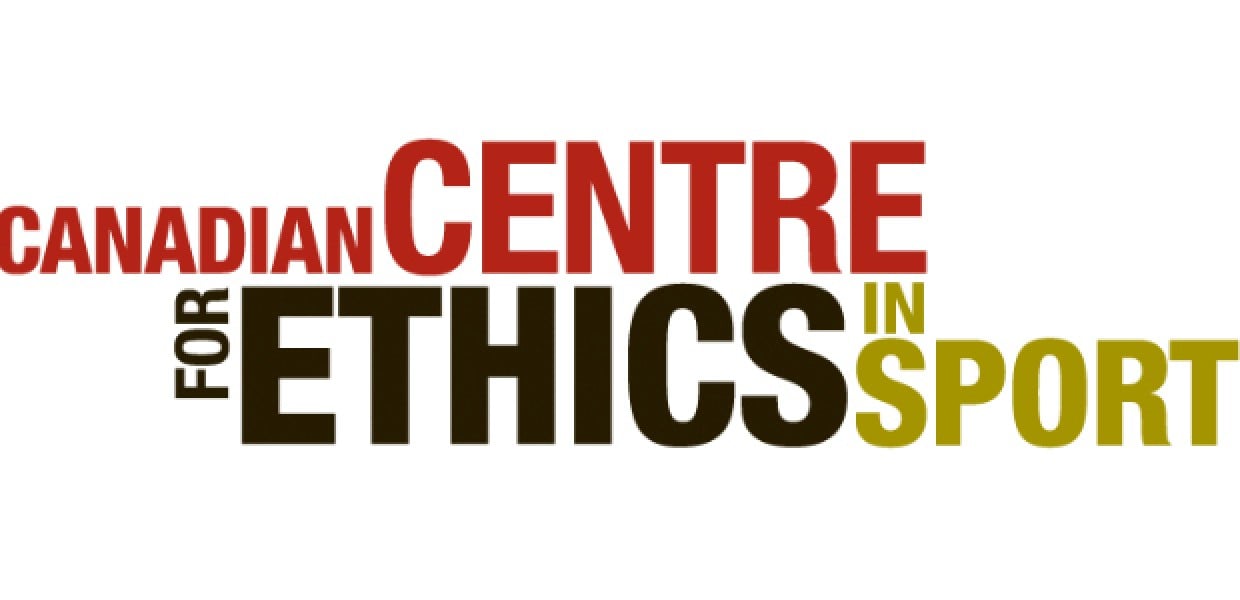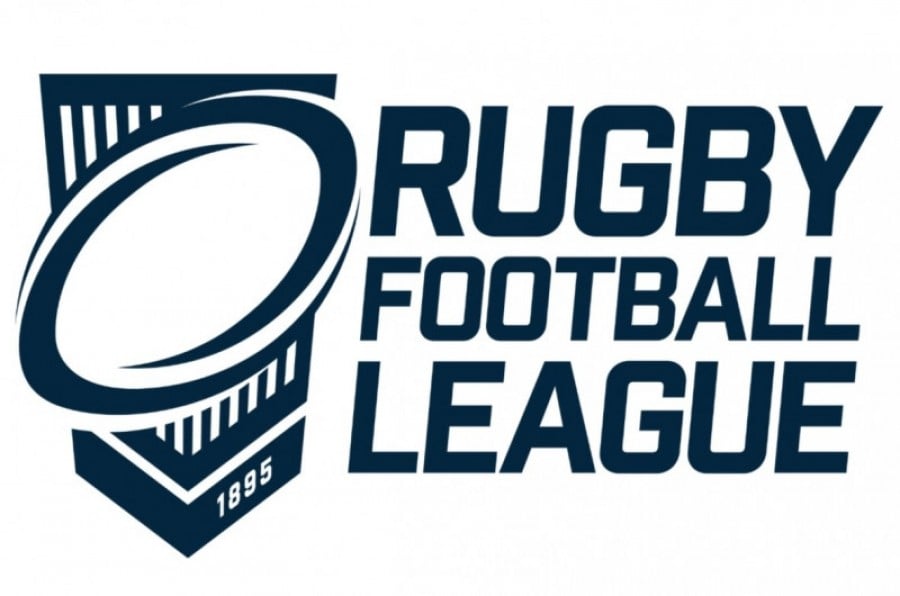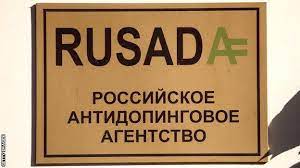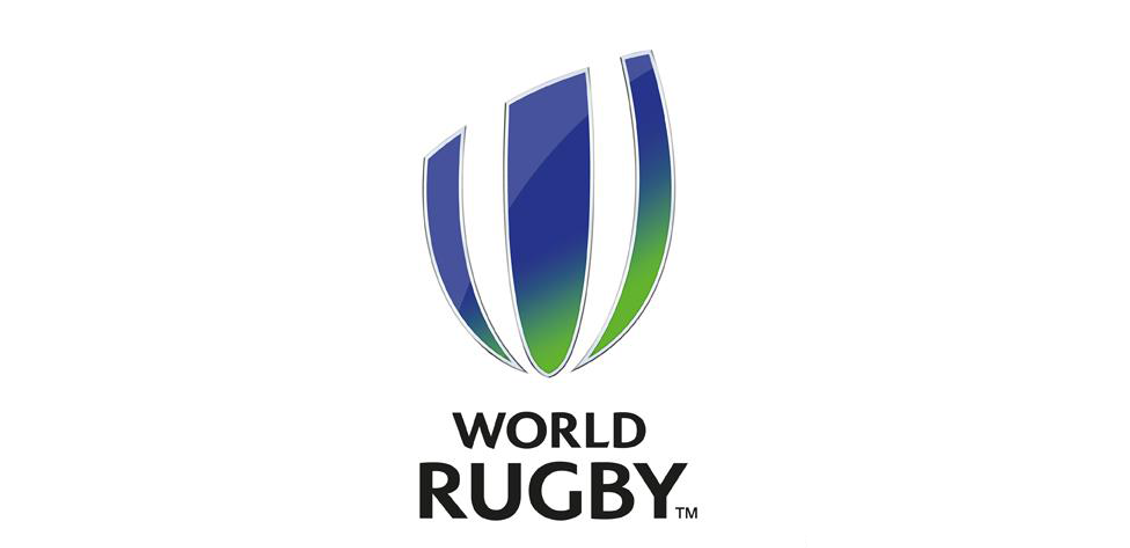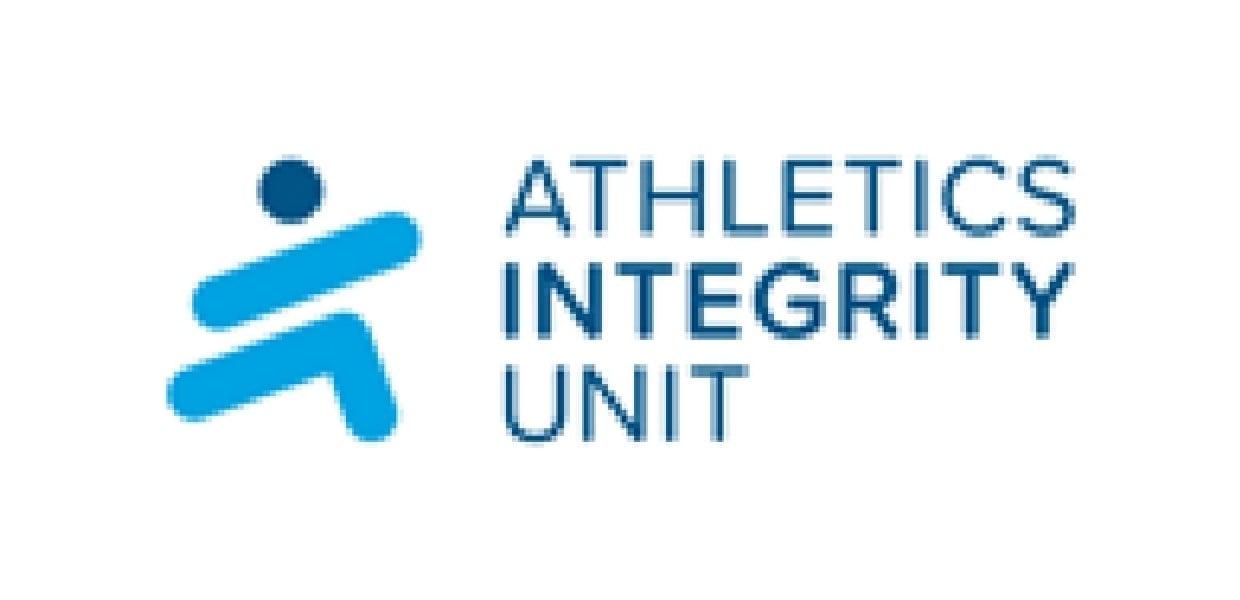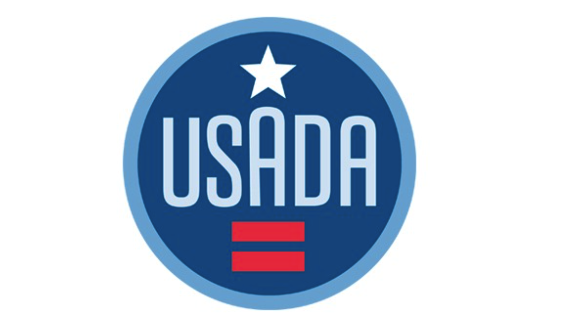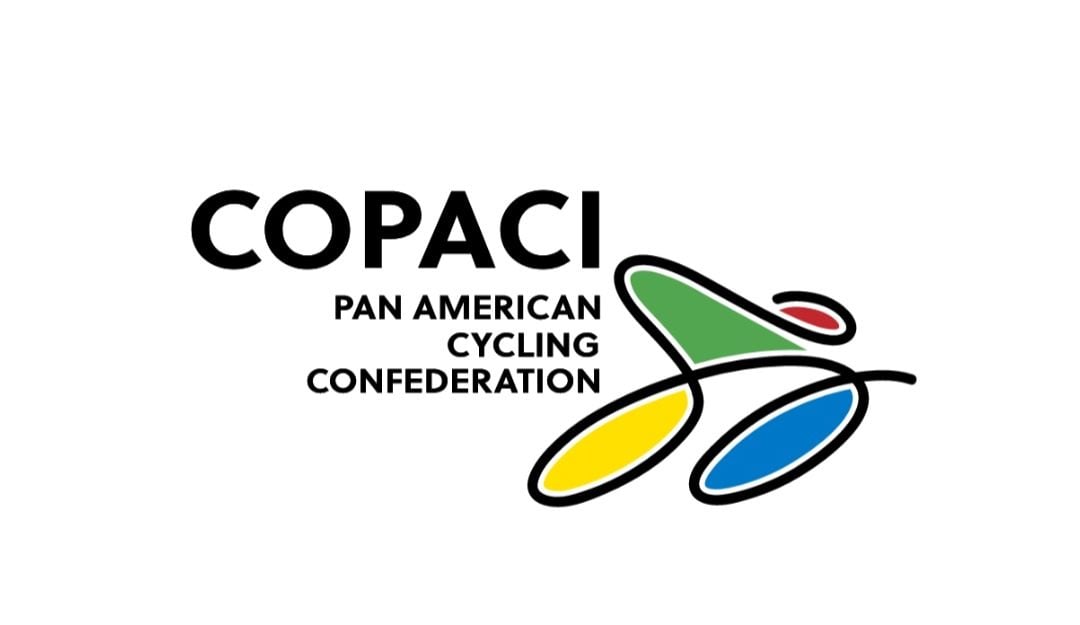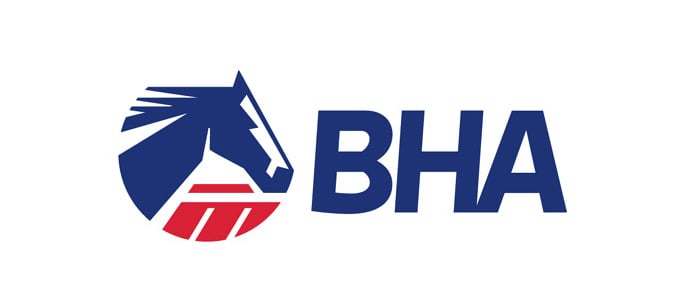On 24-25 August, the World Anti-Doping Agency’s (WADA’s) independent Compliance Review Committee (CRC) met in a hybrid fashion, for its second regular meeting this year, to discuss a range of important issues related to WADA’s World Anti-Doping Code (Code) Compliance Monitoring Program.
The CRC Chair, Mr. Henry Gourdji, who was accompanied by WADA Management in Montreal, lead discussions on the following matters:
-
New cases of Signatory non-compliance with the Code and International Standards, involving both legislation and Code Compliance Questionnaire (CCQ) cases; which, will be presented to WADA’s Executive Committee (ExCo) when they meet on 22 September 2023 (if the non-conformities discussed are not resolved by then);
-
The latest update on the reinstatement conditions imposed by the Court of Arbitration for Sport (CAS) in its award related to the case between WADA and the Russian Anti-Doping Agency (RUSADA);
-
An update on current non-compliant Signatories, including the Democratic People’s Republic of Korea (DPRK) and Gabon National Anti-Doping Organizations (NADOs) and the International Federation of Fitness and Bodybuilding (IFBB);
-
An update on the operations of Ukraine’s NADO and testing of Ukraine athletes. The Ukraine NADO has a suspended compliance case due to force majeure in relation to the ongoing Russian Federation invasion of Ukraine;
-
The latest on the amendments to the International Standard for Code Compliance by Signatories (ISCCS) following stakeholder consultation;
-
An update on the development and implementation of WADA’s Compliance Monitoring Program, including an update on anti-doping rules and legislation review, the CCQ and WADA’s Signatory audit program;
-
WADA’s progress on its Compliance Annual Plan for 2023 and risk management program.
The CRC also held two virtual in-camera sessions on 22 and 23 August to prepare, review and discuss documentation received for the meeting.
The CRC is responsible for providing independent advice, guidance and recommendations to WADA’s management and governing bodies on matters relating to Signatories' compliance with the Code.
The CRC Chair will report to WADA’s ExCo meeting on 22 September.
As part of its ongoing efforts to enhance its anti-doping and integrity initiatives, Concacaf is collaborating with FIFA to intensify its anti-doping efforts within the Confederation’s competitions.
In addition to educational programs, the frequency and volume of testing has increased in 2023 compared to previous years and can be expected to continue to grow in 2024.
2023 has already seen Concacaf implement a new program of doping controls at various major international and club tournaments, including the recently completed 2022-23 Concacaf Nations League Finals, 2023 Concacaf Gold Cup and the 2023 Concacaf Central American Cup, which is currently underway. The 2023-24 Concacaf Nations League and future competitions will also include these new anti-doping provisions.
“Working hand in hand with FIFA, we continue to expand the Confederation's anti-doping program and prioritize integrity and fair play in our game,” said Concacaf Director of Competitions Carlos Fernandez.
“Our joint efforts, including education programs for players and staff and additional testing before and during tournaments, will contribute to Concacaf football's ongoing growth, professionalism, and success.” concluded Fernandez.
The Canadian Centre for Ethics in Sport (CCES) announced today that Donovan Burgmaier, a U SPORTS football athlete affiliated with the University of Alberta, received a seven-year sanction for a second anti-doping rule violation. The athlete’s urine sample, collected out of competition on March 3, 2023, revealed the presence of dehydrochlormethyltestosterone, a prohibited anabolic agent.
On August 6, 2023, the athlete signed an Early Admission and Acceptance, thereby admitting to the violation, waiving his right to a hearing, and accepting the asserted period of ineligibility and all other consequences. As a result, the otherwise applicable eight-year period of ineligibility was reduced by one year in accordance with Canadian Anti-Doping Program (CADP) rule 10.8.1. The seven-year sanction will begin January 26, 2028 (the end date of his current period of ineligibility) and concludes on January 25, 2035.
During the sanction period, the athlete is ineligible to participate in any capacity with any sport signatory to the CADP, including training with teammates.
In compliance with rule 8.4 of the CADP, the CCES’s file outcome summary can be found in the Canadian Sport Sanction Registry.
WITH THE GOAL OF PROVIDING COMPREHENSIVE AND QUALITATIVE FOUNDATIONAL TRAINING ON A GLOBAL SCALE TO PERSONNEL OF ANTI-DOPING ORGANISATIONS AND INDIVIDUALS SEEKING TO ESTABLISH THEMSELVES AS DOPING CONTROL OFFICERS (DCOS), THE INTERNATIONAL TESTING AGENCY (ITA) RECENTLY CONDUCTED ITS FIRST ITA DCO FOUNDATION TRAINING IN ASIA. THE THREE-DAY FACE-TO-FACE TRAINING WAS CONDUCTED AT THE SHANGHAI UNIVERSITY OF SPORTS (SUS), ITA’S FIRST EVER ACADEMIC CENTRE.
Equipping DCOs for Effective Anti-Doping Operations
The ITA’s DCO Foundation Training which was held on 10-12 July at the SUS is an intensive three-day program designed to equip participants with the knowledge, skills, and ethical insights needed to conduct effective anti-doping operations. The training covers a wide array of topics, including an introduction to anti-doping, DCO roles in testing procedures, sample collection techniques, athlete communication, and the legal and ethical dimensions of anti-doping efforts. Role play, the practical handling of doping control kits, interactions and discussions supported the learning process.
The main aim of the training is not only to prepare the participants for their first doping control missions as DCOs, but also to harmonise testing processes worldwide and emphasise the importance of maintaining high ethical standards throughout their work. The ITA aims to instill a deep appreciation for the significance of anti-doping endeavors, inspiring these professionals to be advocates for clean sport.
SUS: A Hub for Anti-Doping Education
Selecting the Shanghai University of Sports as the venue for the ITA DCO Foundation Training underscores the institution’s commitment to sports education and research. As a recognised ITA Academic Centre, SUS provides an ideal setting for a training program that focuses on upholding the values of sports. The collaboration with SUS also allowed the ITA to hold the training for the first time on the Asian continent, easing access for participants from Asian National and Regional Anti-Doping Organisations, sports bodies and interested individuals living on the continent.
Global Participation for Unified Action
The ITA DCO Foundation Training in Shanghai was also held with the support of the Chinese Anti-Doping Agency (CHINADA) and saw participation from a diverse group of thirty course graduates representing various countries: China, HongKong, Chinese Taipei, South Africa, Indonesia, Kyrgyzstan, Greece, Malaysia, Mauritius, New Zealand and the United States.
This global participation showcases the collaborative efforts being made by the ITA to promote quality testing across the globe and uphold the principles of fair play and clean sport. As the thirty course graduates return to their respective regions and countries armed with newfound knowledge and an ITA certification, they may apply to become a DCO with their respective national anti-doping agency or any other anti-doping organisation and hopefully join the clean sport community for many years to come.
The training is delivered with the support of Berlinger Special AG, who also provides the sample collection equipment for the training.
The next ITA DCO Foundation Training will be held in Lausanne, Switzerland, on 25-27 October, more information can be found here.
The UCI Anti-Doping Tribunal has rendered its decision in the case concerning Toon Aerts.
The Tribunal found Toon Aerts guilty of an anti-doping rule violation (presence of letrozole metabolite in a sample collected out-of-competition on 19 January 2022) and imposed a two-year period of ineligibility, starting from 16 February 2022 (the date on which he accepted a provisional suspension).
After a thorough examination of the case, including several expert reports submitted by the Belgian rider, the Tribunal considered that Toon Aerts had failed to establish how the prohibited substance entered his body and imposed the standard sanction under the UCI Anti-Doping Rules (ADR) and the World Anti-Doping Code for the presence of letrozole.
The Tribunal also cancelled Toon Aerts’ race results obtained from 19 January 2022 (date of the sample collection) until 5 February 2022 pursuant to the UCI ADR and the Code.
In accordance with the Procedural Rules of the Tribunal, the decision will be published on the UCI website in due time.
The decision may be appealed before the Court of Arbitration for Sport (CAS) within one month.
The UCI will not comment further on the matter.
UK Anti-Doping (UKAD) has confirmed that Rugby League player Ryan Snowden has been banned from all sport for a period of three years, following first Anti-Doping Rule Violations (ADRVs) for the Use and Presence of Prohibited Substances in his urine Sample.
On 13 December 2022, UKAD collected an Out-of-Competition urine Sample from Mr Snowden at a Batley Bulldogs RLFC squad test. Analysis of Mr Snowden’s urine Sample returned Adverse Analytical Findings (AAFs) for ostarine (enobosarm) and clenbuterol.
Ostarine and clenbuterol are listed under section 1.2 of the World Anti-Doping Agency (WADA) 2022 Prohibited List as Anabolic Agents. They are non-Specified Substances that are prohibited at all times.
On 10 February 2023, UKAD notified Mr Snowden that he may have committed ADRVs pursuant to Article 2.1 (Presence of a Prohibited Substance or its Metabolites or Markers in an Athlete’s Sample) and 2.2 (Use or Attempted Use of a Prohibited Substance or Prohibited Method) of the 2021 UK Anti-Doping Rules (ADR), and provisionally suspended him from that date.
Mr Snowden responded to UKAD’s Notice letter on 16 March 2023 admitting the ADRVs, explaining that he had taken a supplement that contained the Prohibited Substances.
UKAD charged Mr Snowden with both ADRVs on 05 April 2023, which Mr Snowden promptly accepted.
In accordance with ADR Article 10.8.1, Mr Snowden was able to reduce the four-year asserted period of Ineligibility to three years, after admitting the violations and accepting the asserted period of Ineligibility within twenty days of the Charge Letter.
Mr Snowden’s three-year ban from all WADA Code-compliant sport commenced on 10 February 2023 and will expire at midnight on 09 February 2026.
Speaking on the case, Hamish Coffey, UKAD’s Director of Operations said: “There is no place for anabolic steroids in sport and there are serious consequences for athletes caught taking them.
It is important that all athletes follow the Anti-Doping Rules and understand the risks associated with using supplements.”
The Rugby Football League added: “We support UKAD in their determination to ensure that sport is clean, and therefore in their testing programme in and out of competition, of part-time as well as full-time players. This is another example of how strict liability places responsibility on all athletes in these matters, and the serious repercussions of a positive test.”
UK Anti-Doping (UKAD) has confirmed that Rugby League player Ryan Snowden has been banned from all sport for a period of three years, following first Anti-Doping Rule Violations (ADRVs) for the Use and Presence of Prohibited Substances in his urine Sample.
On 13 December 2022, UKAD collected an Out-of-Competition urine Sample from Mr Snowden at a Batley Bulldogs RLFC squad test. Analysis of Mr Snowden’s urine Sample returned Adverse Analytical Findings (AAFs) for ostarine (enobosarm) and clenbuterol.
Ostarine and clenbuterol are listed under section 1.2 of the World Anti-Doping Agency (WADA) 2022 Prohibited List as Anabolic Agents. They are non-Specified Substances that are prohibited at all times.
On 10 February 2023, UKAD notified Mr Snowden that he may have committed ADRVs pursuant to Article 2.1 (Presence of a Prohibited Substance or its Metabolites or Markers in an Athlete’s Sample) and 2.2 (Use or Attempted Use of a Prohibited Substance or Prohibited Method) of the 2021 UK Anti-Doping Rules (ADR), and provisionally suspended him from that date.
Mr Snowden responded to UKAD’s Notice letter on 16 March 2023 admitting the ADRVs, explaining that he had taken a supplement that contained the Prohibited Substances.
UKAD charged Mr Snowden with both ADRVs on 05 April 2023, which Mr Snowden promptly accepted.
In accordance with ADR Article 10.8.1, Mr Snowden was able to reduce the four-year asserted period of Ineligibility to three years, after admitting the violations and accepting the asserted period of Ineligibility within twenty days of the Charge Letter.
Mr Snowden’s three-year ban from all WADA Code-complaint sport commenced on 10 February 2023 and will expire at midnight on 09 February 2026.
Speaking on the case, Hamish Coffey, UKAD’s Director of Operations said: “There is no place for anabolic steroids in sport and there are serious consequences for athletes caught taking them.
It is important that all athletes follow the Anti-Doping Rules and understand the risks associated with using supplements.”
Today, the World Anti-Doping Agency (WADA) is pleased to share outcomes from July’s inaugural meeting of its Athlete Advisory Group on Human Rights in Anti-Doping (Advisory Group), which is made up of members of WADA’s Athlete Council.
An Initial Human Rights Impact Assessment (IHRIA) was first proposed by WADA’s Athlete Committee in 2021 (now known as the Athlete Council) with the objective of ensuring that WADA respects and protects the universally recognized human rights of athletes as it leads a global collaborative mission for doping-free sport.
In November 2022, WADA’s Executive Committee (ExCo) confirmed the appointment of Senior Independent Expert, Ms. Snežana Samardžić-Marković, to lead an IHRIA to evaluate the intersection between the World Anti-Doping Program (Program) and the human rights of athletes; and, in March 2023, WADA announced that it had begun the work.
In July, the Advisory Group held its first meeting, which focused on several topics connected to the IHRIA, including:
-
Gaining a deeper understanding of the United Nations Guiding Principles (UNGP) on Business and Human Rights, which serve as the benchmark for the IHRIA;
-
Sharing personal experiences or knowledge through stories that illustrated the situations where individual human rights were tested;
-
Discussing ways to solve important strategic dilemmas, to identify and prioritize potential human rights infringements; and
-
Emphasizing communication as one of the essential aspects of the Group's efforts.
Ms. Samardžić-Marković said: "I am delighted that the Athlete Advisory Group on Human Rights in Anti-Doping convened and that we had valuable discussions about the UNGPs on Business and Human Rights. The personal stories shared during the meeting shed light on potential adverse impacts on athletes' human rights, reinforcing the importance of our work.
“In our discussions, we also addressed the Advisory Group's role in the Initial Human Rights Impact Assessment process and the strategic challenges that lie ahead. I am impressed by the dedication and expertise of the Group members, and I feel assured of their strong commitment to human rights and their support for the ongoing assessment. Together, we are taking significant steps to ensure that human rights remain a priority in anti-doping, and I look forward to continuing this essential work with the guidance and support of this remarkable group."
Athlete Council Chair and ExCo member, Ryan Pini, said: “The first meeting of the Athlete Advisory Group on Human Rights in Anti-Doping resulted in thoughtful, meaningful and productive discussions that have laid the foundation for the Group’s future successes. The Group's examination of various aspects of the anti-doping system such as public disclosure, strict liability of athletes and the professionalization of the fight against doping in sport has led to important insights. This first meeting highlighted the necessity to focus on discussing human rights in the context of anti-doping efforts, which we intend on doing in the months and years to come.
“As a new body resulting from governance reform, WADA’s Athlete Council holds a special responsibility to address the challenges identified by the Athlete Advisory Group on Human Rights in Anti-Doping. We have high expectations for what this Group of representatives can achieve for athletes around the world, and we will strive to enhance athletes' involvement and ensure their voices are heard in shaping anti-doping policy.”
The next meeting of the Advisory Group is scheduled to take place in September 2023, which will particularly focus on the most salient activities at risk to cause or contribute to adverse human rights impact. The Group will also discuss initial recommendations on how to prevent or mitigate these risks.
Disciplinary Anti-Doping Committee of RAA RUSADA rendered the decision that made coach Ermakova Evgeniya (swimming) ineligible for 4 years for violation under cl. 4.8 of the All-Russian Anti-Doping Rules, the period commencing on June 01, 2023.
Commission on preliminary consideration of anti-doping rules violations of RAA RUSADA rendered the decision that made athlete Smirnov Andrey (rugby) ineligible for 5 years for violation under cl. 4.1 and cl. 4.2 of the All-Russian Anti-Doping Rules. The period of ineligibility is commencing on the date of the decision, namely on July 31, 2023, with credit for the served period of provisional suspension, namely from July 6, 2023.
The FEI Tribunal has issued a Consent Award under the FEI Equine Anti-Doping Rules Article 2.3 for Evading, Refusing or Failing to Submit the horse to Sample Collection.
In this case, the athlete Abdullah Aldhuwayhi (FEI ID 10203839/KSA), failed to submit the horse Shaymaa (FEI ID 106RQ41/KSA), to the doping control station for a sample collection at the CEI2* 120 - Al Ula (KSA), 03-04 March 2023.
The athlete, admitted the rule violation and accepted the consequences. In its final decision the FEI Tribunal disqualified the horse and rider combination from the event and imposed an 18-month ineligibility period on the athlete from the date of the Consent Award. He was also fined CHF 5,000.
The full Decision is available here.
The Canadian Centre for Ethics in Sport (CCES) announced today that Osaze De Rosario, a Canadian Premier League (CPL) soccer athlete affiliated with the York United Football Club, received a one-month sanction for an anti-doping rule violation. The athlete’s urine sample, collected during an in-competition sample collection session on October 1, 2022, revealed the presence of cannabis, a prohibited cannabinoid. The CCES is satisfied in this case, that cannabis was inadvertently ingested out-of-competition and unrelated to sport.
The presence of cannabis, classified as both a “specified substance” and a “substance of abuse” on the 2022 World Anti-Doping Agency Prohibited List, is considered an adverse analytical finding when the urinary concentration exceeds 150 ng/mL. The CCES assessed the relevant provisions of the Canadian Anti-Doping Program (CADP) and proposed a one-month period of ineligibility for this violation.
In response to the CCES’s proposition, the athlete signed an Agreement on the Consequences thereby waiving their right to a hearing and accepting the proposed sanction and all other consequences. The sanction terminates September 3, 2023.
During the sanction period, the athlete is ineligible to participate in any capacity with any sport signatory to the CADP, including training with teammates.
In compliance with rule 8.4 of the CADP, the CCES’s file outcome summary can be found in the Canadian Sport Sanction Registry.
Inspired by the calls of trail running athletes, the United States Anti-Doping Agency (USADA) is pleased to announce a partnership with Salomon North America and the Golden Trail Series to conduct pre-race anti-doping education and in-competition testing at the Pikes Peak Ascent and Mammoth Trail Fest this September. The partnership is an important first step in implementing robust anti-doping protocols and practices to provide trail runners with access to a level playing field.
“Trail running athletes have been calling for robust anti-doping protocols in their sport for years and we are honored to stand with them in the effort,” said USADA CEO Travis T. Tygart. “This partnership with the Golden Trail National Series is a great step in the right direction and we hope to see more progress in the future with additional education, increased in-competition testing, and the potential addition of out-of-competition testing.”
Under the current agreement, USADA will deliver a pre-race education webinar for all athletes competing in the Mammoth Trail Fest in Mammoth Lakes, California and the Pikes Peak Ascent, where athletes will attempt to summit Pikes Peak in Colorado Springs at a grueling vertical climb of 7,800 feet. Additionally, athletes competing in these events will be subject to urine testing during the in-competition period. All testing will be conducted in accordance with the World Anti-Doping Agency (WADA) International Standard for Testing and Investigations.
“At Mammoth Trail Fest, we believe in with respect to the environment, competitive sport, and our community, there is no place for shortcuts or compromised ethics,” shares Mammoth Trail Fest race director, Tim Tollefson. “We remain committed to clean sport through advocacy and education. We are delighted that we now offer legitimate gold standard race-day testing at both races through USADA.”
“The Golden Trail Series brings an elevated level of competition to the Pikes Peak Ascent, and with this level of competition, we want to advocate for clean sport and enhance the future of trail running,” says Ryan Linder, Pikes Peak Marathon race director. “Overall, the Pikes Peak Marathon is thrilled to collaborate with Salomon and Mammoth Trail Fest to make this partnership with USADA possible.”
Results management will be conducted by USADA and handled according to the WADA International Standard for Results Management. As always when USADA is the results management authority, any sanctions will be published on the USADA website after conclusion of the results management process. Race organizers will withhold prize money until the results are processed.
The ITA’s partnership with Caribbean RADO focuses on harmonising testing efforts to ensure an effective allocation of resources and intelligence-led programs at both national and international levels. The collaboration also supports the exchange of information between the ITA and the Caribbean RADO to the benefit of potential investigations and intelligence-led doping controls in the countries and for the athletes it represents. Finally, the collaboration also extends to identifying mutual efficiencies and opportunities for capacity building in the area of anti-doping education.
The Caribbean Regional Anti-Doping Organization is based in Barbados and acts as the secretariat to coordinate anti-doping efforts in the countries of Antigua & Barbuda, Aruba, Barbados, Bonaire, British Virgin Islands, Cayman Islands, Curacao, Dominica, Grenada, Guyana, Montserrat, St. Lucia, St. Kitts and Nevis, St. Vincent and the Grenadines, Suriname, The Virgin Islands (US), Trinidad and Tobago and Turks and Caicos Islands. It was established in 2005, one year after the World Anti-Doping Agency (WADA) created the RADO program to strengthen the protection of athletes in regions where countries organise their anti-doping efforts within regional conglomerates and is one of three RADOs in the Americas. It is the third RADO to enter a partnership with the ITA after the Central Asian and Panamerican RADOs.
“We are very pleased to officialise our collaboration with the Caribbean RADO and strengthen our network of partnerships in the Americas,” said ITA Director General Benjamin Cohen. “Through our joint agreement we can work hand in hand to enhance anti-doping efforts for international-level athletes from the countries the Caribbean RADO represents and those who are tested within their territory. Seamless information-sharing between our two organisations will furthermore ensure that investigations into any potential doping offences can be conducted across borders and regions. I welcome the Caribbean RADO to our network of partnerships with national and regional anti-doping organisations and look forward to working with them for our joint cause of fair play and clean sport.”
“The Caribbean Regional Anti-Doping Organization is committed to fostering a clean-sport environment, ensuring that our member countries are compliant with the World Anti-Doping Code, while protecting the rights of athletes,” said Patrick Werleman, Chairman of the Caribbean Regional Anti-Doping Organization. “As such, we focus on establishing key partnerships with regional and international organizations. We are enthusiastic about the new collaboration agreement between the Caribbean RADO and the International Testing Agency (ITA). We have worked well with the ITA on numerous occasions; and this MOU further highlights our continued commitment to the delivery of high-quality anti-doping services. The Caribbean RADO coordinates most of the sample collection in our member countries on behalf of local, regional, and international sporting bodies. This collaboration with the ITA is especially valuable in the areas of testing, information sharing and intelligence. We are looking forward to working closer and more effectively with the ITA to the benefit of our member countries and the Caribbean region as a whole.”
The ITA has already established bilateral collaboration agreements with over 30 National and Regional Anti-Doping Organisations on all continents of the world. The ITA strongly believes that the anti-doping community is able to bring the support of athletes to the next level by working hand-in-hand with all other anti-doping organisations. Consequently, the ITA will continue to welcome to its network any National and Regional Anti-Doping Organisation that wishes to strengthen synergies between national and international level anti-doping programs.
Sport Integrity Australia acknowledges the decision of Basketball Australia to impose a one-month ban on Tahjere McCall for the Presence of a metabolite of a Prohibited Substance.
Mr McCall, an American professional basketball player who is contracted to the Cairns Taipans in the National Basketball League (NBL), returned an Adverse Analytical Finding (AAF) from an In-Competition doping control test on 3 February 2023 at the Perth v Cairns game at RAC Arena, Perth, Western Australia.
Mr McCall’s sample was analysed at the Australian Sports Drug Testing Laboratory, part of the National Measurement Institute, and the presence of 11-nor-delta-9-tetrahydrocannabinol-9-carboxylic acid (metabolite of Tetrahydrocannabinol (THC)) was detected.
The substance THC is listed under class S8 (Cannabinoids) and is classified as a Specified Substance under the World Anti-Doping Code – International Standard – Prohibited List – 2023 (2023 Prohibited List) and is prohibited In-Competition. THC is also classified as a ‘Substance of Abuse’ under the 2023 Prohibited List.
As of 1 January 2021, under Article 10.2.4.1 of the Australian National Anti-Doping Policy 2021 (ANADP), if an Athlete tests positive to a 'Substance of Abuse’ (such as Marijuana or Cocaine), then the Athlete’s period of Ineligibility may be reduced to three months if the Athlete is able to prove that the substance was ingested or Used Out-of-Competition and was unrelated to sport performance.
In addition, the Athlete’s period of Ineligibility calculated under Article 10.2.4.1 of the ANADP may be further reduced to one month if the Athlete satisfactorily completes a Substance of Abuse treatment program approved by Sport Integrity Australia.
In Mr McCall’s case, all requirements for a reduction in the period of Ineligibility under Article 10.2.4.1 of the ANADP were satisfied.
Basketball Australia thereby imposed a one-month period of Ineligibility on Mr McCall, commencing on 21 June 2023.
Mr McCall was ineligible to participate in any sports that have adopted a World Anti-Doping Code compliant anti-doping policy until 21 July 2023.
The Athletics Integrity Unit (AIU) has unveiled an extensive testing plan for the World Athletics Championships Budapest 23 – in partnership with the Hungarian Anti-Doping Agency (HUNADO) and the Local Organising Committee (LOC) – with more than 1,100 tests combined, for profiling and detection, to be undertaken for the elite event.
On the eve of the Championships in the Hungarian capital, AIU Chair David Howman detailed the highlights of the AIU’s Test Distribution Plan yesterday. The wide range of tests and analyses include up to 600 pre-competition tests (for profiling purposes mainly) in the period 14-24 August at the athletes’ hotels as well as up to 550 in-competition tests (mainly detection tests) at the stadium.
“This is one of the biggest and most intensive anti-doping programmes outside of the Olympic Games,” he noted.
“We are determined to protect the integrity of the World Championships, in particular the podium, and the scope of testing underlines the level of our commitment to our mandate.”
Urine, blood and Dried Blood Spot (DBS) samples will be collected and analysed for a wide range of substances or methods: EPO and Growth Hormones analyses on urine and blood samples; Isotope Ratio Mass Spectrometry (IRMS) analyses for steroid doping; and Athlete Biological Passport (ABP) analyses for blood doping and steroid doping. Other analyses such as blood transfusion analyses and analyses for steroid esters will be performed. All samples will be collected by the Hungarian Anti-Doping Agency (HUNADO) and will be analysed at the WADA-accredited laboratory in Seibersdorf, Austria.
“We are pleased to have good facilities in which to work; nine testing locations at hotels and two world-class testing locations at competition venues. The AIU appreciates the great rapport and collaboration which it has enjoyed with the LOC for Budapest 23 and we look forward to supporting clean athletes and competition through our important work,” added Howman.
The AIU has been closely monitoring national testing programmes in the lead-up to Budapest, in accordance with Rule 15 of the World Athletics Anti-Doping Rules, and has observed that the level of testing of elite athletes has generally increased compared with last year, thanks to the joint efforts of the AIU and National Federations, supported by their National Anti-Doping Organisation (NADO). Due to exceptional circumstances arising from the war in Ukraine, the AIU Board has exempted 12 Ukrainian athletes from the strict eligibility requirement under Rule 15 to have at least three out-of-competition tests in the ten months prior to the Championships.
Another key component of the AIU’s mission at Budapest 23 is the continuation of a pilot study, initiated last year in collaboration with the United States Anti-Doping Agency (USADA), which has been exploring a new and less invasive method for collecting blood samples from athletes for anti-doping profiling purposes. Athletes selected for doping control in Budapest will be asked to contribute to the study by providing an additional sample using the new device. The results will be compared with the routine samples.
“The AIU is constantly looking to innovate and upgrade our technology, and this is a major step in advancing our blood-collection protocols. There were some very promising results trialling the new device at previous events, including this year’s Boston Marathon,” explained Howman.
As for every World Championships, doping control samples collected in Budapest will be transferred to a dedicated long-term storage facility, after the initial analyses have been performed, with the view to re-analyse them in the future, using the latest available detection analyses or methods.
Statements released by UK Anti-Doping regarding Conor Benn
Last updated: 17 August 2023, 15:23 BST
17 August 2023
A UKAD spokesperson, said:
“UK Anti-Doping (UKAD) can today confirm that it has filed an appeal in respect of a decision handed down by the independent National Anti-Doping Panel regarding anti-doping proceedings brought by UKAD against Mr Conor Benn.
“As confirmed previously in UKAD’s statement on 28 July 2023, Mr Benn is no longer subject to a provisional suspension.
“The appeal process will now be followed in accordance with the UK Anti-Doping Rules.
"UKAD issues this statement in accordance with Article 14.3.4 of the World Anti-Doping Code and is not able to make any further public disclosures at this time.”
28 July 2023
A UKAD spokesperson, said:
“In April 2023 UK Anti-Doping (UKAD) took the exceptional step of publicly disclosing details of Mr Conor Benn’s provisional suspension and charge following reports from the media and comments made by Mr Benn himself. UKAD’s statement also confirmed that the case would follow the Results Management process in accordance with the UK Anti-Doping Rules.
“UKAD notes that Mr Benn has made further public comments today regarding proceedings before the independent National Anti-Doping Panel. UKAD can confirm Mr Benn is no longer provisionally suspended under the UK Anti-Doping Rules.
“The UK Anti-Doping Rules detail limited circumstances in which UKAD is able to make public disclosures about ongoing cases. They also set out a clear process within which cases can be heard and decisions can be handed down by the independent National Anti-Doping Panel. Where case decisions are handed down by a panel, the Rules provide all relevant parties with a right of appeal. Under the Rules, UKAD has 21 days from the date of receipt of a decision to file any appeal. UKAD carefully reviews all decisions in its cases before deciding whether to exercise its right of appeal.
“UKAD is not able to make any further public disclosures in accordance with the UK Anti-Doping Rules at this time.”
20 April 2023
A UKAD spokesperson, said:
“Following a public consultation in late 2020, and having considered the results of that consultation, UKAD’s Board decided in February 2021 that UKAD will not routinely publicly disclose the fact that an Athlete has been charged or provisionally suspended before a charge has been resolved. However, it was also recognised that there might be limited and rare examples where it is appropriate to do so in ‘exceptional circumstances’, as set out in UKAD’s Policy on Public disclosure of provisional suspensions and charges available here.
"Following reports in the media and comments made by professional boxer Mr Conor Benn on Tuesday 18 April 2023, and in exceptional circumstances, UK Anti-Doping (UKAD) confirms that Mr Benn was notified and provisionally suspended by UKAD on 15 March 2023 in accordance with the UK Anti-Doping Rules. Whilst provisionally suspended Mr Benn is prohibited from participating in any capacity (or assisting another Athlete in any capacity) in a Competition, Event or activity that is organised, convened, authorised or recognised by the British Boxing Board of Control or any other World Anti-Doping Code-compliant sport.
"UKAD can also confirm that on 3 April 2023 it charged Mr Benn with an Article 2.2 violation for the alleged Use of a Prohibited Substance (clomifene). The charge against Mr Benn is pending and will now follow the Results Management process in accordance with the UK Anti-Doping Rules.
"UKAD issues this statement in accordance with its Policy on Public disclosure of provisional suspensions and charges and Articles 7.10.7 and 7.11.5 of the UK Anti-Doping Rules. UKAD will not be providing any further comment at this stage.”
15 October 2022
UK Anti-Doping’s (UKAD) Chief Executive, Jane Rumble, said: “UKAD takes all matters of suspected doping activity very seriously. We act on all reports of doping and encourage anyone with information on suspected doping activity to come forward and share that with us in confidence via our Protect Your Sport initiative.
“UKAD will not comment publicly on the specific facts of any case that may or may not be ongoing. We do this to respect and ensure the confidentiality of information as required by the World Anti-Doping Code and other applicable laws and regulations. Athletes know their rights and responsibilities when it comes to anti-doping and we will continue to work tirelessly to remove anyone from sport that breaks the rules.”
6 October 2022
UK Anti-Doping (UKAD) Chief Executive, Jane Rumble said, “UKAD notes the reporting of a failed VADA test by the boxer Conor Benn with concern. UKAD acts on all reports of doping and always encourages anyone with information on suspected doping activity to come forward and share that with us.”
UK Anti-Doping (UKAD) has confirmed that Rugby League player Rob Worrincy has been banned from all sport for a period of three years following first Anti-Doping Rule Violations (ADRVs) for the Use and Presence of Prohibited Substances in his urine Sample.
On 20 January 2023, UKAD collected an Out-of-Competition urine Sample from Mr Worrincy at a Hunslet RLFC squad training session. Analysis of Mr Worrincy’s urine Sample returned Adverse Analytical Findings (AAFs) for ostarine (enobosarm), ibutamoren and GW1516 Metabolites; GW1516-sulfoxide and GW1516-sulfone.
Ostarine is listed under section 1.2 of the 2023 WADA Prohibited List as an Anabolic Agent. Ibutamoren is listed under section 2.4 of the 2023 WADA Prohibited List as a Peptide Hormone. GW1516 is listed under section 4.4 of the 2023 WADA Prohibited List as a Hormone and Metabolic Modulator. All three substances are prohibited at all times.
On 24 February 2023, UKAD notified Mr Worrincy that he may have committed ADRVs pursuant to Article 2.1 (Presence of a Prohibited Substance or its Metabolites or Markers in an Athlete’s Sample) and 2.2 (Use or Attempted Use of a Prohibited Substance or Prohibited Method) of the 2021 UK Anti-Doping Rules (ADR), and provisionally suspended him from that date.
Mr Worrincy responded to UKAD’s Notice on 01 March 2023 admitting the ADRVs, indicating that he had used a supplement that contained the Prohibited Substances found in his Sample.
UKAD charged Mr Worrincy with both ADRVs on 24 March 2023, which Mr Worrincy promptly accepted.
In accordance with ADR Article 10.8.1, Mr Worrincy was able to reduce the asserted four-year period of Ineligibility to three years, after admitting the violations and accepting the asserted period of Ineligibility within twenty days of the Charge Letter
Mr Worrincy’s ban from all WADA Code-compliant sport commenced on 24 February 2023 and will expire at midnight on 23 February 2026.
Speaking on the case, Hamish Coffey, UKAD’s Director of Operations said: “Athletes who violate the Anti-Doping Rules face a ban from sport. It is important that all athletes follow the Anti-Doping Rules and understand the risks associated with using supplements.”
The Rugby Football League added: “We support UKAD in their determination to ensure that sport is clean, and therefore in their testing programme in and out of competition, of part-time as well as full-time players. This is another example of how strict liability places responsibility on all athletes in these matters, and the serious repercussions of a positive test.”
A panel of the Disciplinary Tribunal, by majority decision, has today found that Tobi Amusan has not committed an Anti-Doping Rule Violation (ADRV) of three Whereabouts Failures within a 12-month period.
AIU Head Brett Clothier has indicated the Athletics Integrity Unit (AIU) is disappointed by this decision and will review the reasoning in detail before deciding whether to exercise its right of appeal to the Court of Arbitration for Sport (CAS) within the applicable deadline. The decision is currently confidential but will be published in due course.
Amusan’s provisional suspension has now been lifted with immediate effect.
- Dr Richard Freeman violated the UK Anti-Doping Rules by (1) taking possession of an order of 30 sachets of Testogel (i.e. testosterone gel) at the National Cycling Centre in Manchester, in May 2011, and (2) lying to UKAD in respect of that order.
- By way of a decision of the independent National Anti-Doping Panel in July 2023, Dr Freeman received a four-year ban from sport.
UK Anti-Doping (UKAD) has today confirmed that former British Cycling and Team Sky doctor Richard Freeman has been banned from all sport for four years after the independent National Anti-Doping Panel found he committed the Anti-Doping Rule Violations of ‘Possession of a Prohibited Substance’ and (on two distinct occasions) ‘Tampering’.
In September 2016, UKAD commenced an investigation after receiving information that a possible Anti-Doping Rule Violation may have been committed by individuals associated with Team Sky in connection with the Critérium du Dauphiné, a professional cycling event, in June 2011. The possible violation in question concerned the alleged contents of a package (widely referred to as ‘the Jiffy bag’) that was delivered to Dr Freeman at the end of the event.
During the course of UKAD’s investigations into those matters, UKAD’s investigators uncovered that a delivery of 30 Testogel sachets had been made to British Cycling’s Headquarters, at the Manchester Velodrome in May 2011. Testogel is a prescription-only medication that contains the banned substance testosterone which, under the UK Anti-Doping Rules, is prohibited at all times. Each of the violations proved by UKAD in its proceedings before the independent National Anti-Doping Panel concern this Testogel delivery.
As part of its investigation into the Testogel, UKAD interviewed Dr Freeman in February 2017. In interview, Dr Freeman claimed to have ordered the Testogel for a ‘non-rider’ member of British Cycling staff, but said that the Testogel had been returned to the supplier for destruction. Dr Freeman failed to name the ‘non-rider’ patient who he claimed the Testogel was for, relying on patient confidentiality. He claimed that he had written to the patient asking them to waive confidentiality and they had refused to consent to matters being discussed with UKAD. UKAD, however, continued to investigate matters relating to the Testogel – including in particular Dr Freeman’s account that the order had been placed for a ‘non-rider’ member of British Cycling staff. Evidence obtained by UKAD indicated that the Testogel had not been returned to the supplier as Dr Freeman claimed. In April 2017, UKAD made a referral to the General Medical Council (GMC) in respect of UKAD’s concerns relating to Dr Freeman’s conduct and fitness to practise.
The GMC then investigated Dr Freeman and went on to commence a case before the independent Medical Practitioners Tribunal Service (MPTS) in October 2019. In March 2021, an MPTS tribunal found proven the allegation that Dr Freeman ordered testosterone, ‘knowing or believing’ it to be for an unnamed rider in May 2011 to improve their athletic performance. It was also found proven that he had lied to UKAD under investigation when claiming that the Testogel had been ordered for a ‘non-rider’ patient and had been returned to the supplier. The MPTS tribunal erased Dr Freeman from the Medical Register, a decision which was subsequently upheld by the High Court on appeal by Dr Freeman.
On 22 December 2020 (whilst the MPTS hearing was ongoing), UKAD provisionally suspended Dr Freeman and charged him with the commission of Anti-Doping Rule Violations. He was charged with an Article 2.6 violation under the 2009 UK Anti-Doping Rules for ‘Possession of a Prohibited Substance’, namely testosterone, in connection with an Athlete, Event or training. UKAD also charged Dr Freeman with two separate Article 2.5 violations under the 2015 UK Anti-Doping Rules for ‘Tampering’. The first Tampering violation concerned Dr Freeman knowingly providing UKAD with false information that the Testogel had been returned to the supplier. The second Tampering violation concerned Dr Freeman knowingly providing UKAD with false information that he had written to a non-rider member of staff requesting that they waive patient confidentiality and claiming that they had refused to do so.
An independent tribunal of the National Anti-Doping Panel convened in July 2023 to consider UKAD’s case against Dr Freeman and found all charges proven. The tribunal was comfortably satisfied that Dr Freeman had ‘intended to make available to one or more of his athletes the Prohibited Substance delivered to the Manchester Velodrome'. Whilst Dr Freeman had accepted that he had lied to UKAD about returning the Testogel to the supplier, he maintained that he had written to a non-rider member of staff requesting that they waive patient confidentiality and that they had refused to do so. The independent tribunal found that UKAD had also proved the second Tampering violation against Dr Freeman whose ‘conduct subverted Doping Control'.
The independent tribunal of the National Anti-Doping Panel sanctioned Dr Freeman with a four-year ban, effective from 22 December 2020 (the date of his provisional suspension), making him ineligible to participate in any World Anti-Doping Code-compliant sport until 21 December 2024.
Jane Rumble, UKAD’s Chief Executive added, “The decision of the independent tribunal of the National Anti-Doping Panel confirms that Richard Freeman broke the UK Anti-Doping Rules. The rules are in place to make sure everyone plays their part in keeping sport clean and to ensure a level playing field.
“The outcomes of both UKAD and the GMC’s respective investigations were vital to outing the truth in this matter. This case sends a strong message to all athlete support personnel that the rules apply equally to them, just as they do to athletes, and that they have a clear responsibility to uphold the values of integrity in sport. When they fail to do so, every effort will be taken to ensure that the rules are enforced.”
Mario Theophanous, Head of UKAD’s Intelligence and Investigations Team, who led UKAD’s investigation into Dr Freeman:
“This was a complex and comprehensive investigation to ascertain whether any wrongdoing had been committed, working with individuals who bravely came forward to give information to protect the values of their sport.
Every piece of information, no matter how small, can make the difference in a complex case like this, building enough evidence to hold to account those who choose to break the rules. I would like to place on record my thanks to all those individuals who placed their trust in UKAD and provided evidence that led to this result. I encourage anyone who has concerns around doping activity in sport, to report it to UKAD via our Protect Your Sport initiative.”
Frank Slevin, British Cycling Chair said: “We note today's verdict from the National Anti-Doping Panel and thank them for the time and consideration put into reaching their decision. Throughout this case we have reiterated our belief that it is in public interest that all matters are heard and thoroughly examined, and have made every effort to support both UK Anti-Doping and the General Medical Council in their respective investigations.
“As we have stated previously, Richard Freeman’s conduct during his employment by British Cycling bore no resemblance to the high ethical and professional standards which we, our members and our partners rightly expect.”
Commission on preliminary consideration of anti-doping rules violations of RAA RUSADA rendered the decision that made athlete Danilov Sergey (bodybuilding) ineligible for 4 years for violation under cl. 4.3 of the All-Russian Anti-Doping Rules. The period of ineligibility is commencing on the date of the decision, namely on July 24, 2023, with credit for the served period of provisional suspension, namely from April 26, 2023.
Commission on preliminary consideration of anti-doping rules violations of RAA RUSADA rendered the decision that made athlete Yatsunenko Aleksandr (American football) ineligible for 5 years for violation under cl. 4.1, cl. 4.2 and cl. 4.5 of the All-Russian Anti-Doping Rules. The period of ineligibility is commencing on the date of the decision, namely on July 24, 2023, with credit for the served period of provisional suspension, namely from May 31, 2023.
THE INTERNATIONAL TESTING AGENCY (ITA) REPORTS THAT THE SRI LANKAN RIDER MATHILDA KARLSSON HAS BEEN SANCTIONED WITH A 19-MONTH PERIOD OF INELIGIBILITY AFTER MISSING THREE ANTI-DOPING CONTROLS WITHIN A TWELVE-MONTH PERIOD.
The ITA, on behalf of the Fédération Équestre Internationale (FEI), confirms that Mathilda Karlsson has been suspended for a 19-month period, effective until 14 January 2025 after committing three whereabouts failures within a twelve-month period as defined in article 2.4 of the FEI ADRHA.
The case was resolved via an agreement on consequences pursuant to article 8.3.1 of the FEI Anti-Doping Rules for Human Athletes (FEI ADRHA), and equivalent provision in the World Anti-Doping Code.
The athlete qualified for a reduction of the otherwise two-year period ineligibility pursuant to article 10.3.2 of the FEI ADRHA which provides that the sanction can be reduced to a minimum of one year depending on the athlete’s degree of fault. The athlete’s results will be disqualified from 20 November 2022 until the start of the athlete’s provisional suspension on 15 June 2023.
-
Most comprehensive programme ever implemented in competition’s history
-
All 835 tests conducted in and out of competition by FIFA yield negative results
-
More than 25% increase in tests per team compared to France 2019
FIFA has implemented the most comprehensive FIFA Women’s World Cup™ anti-doping programme ever, with the 835 in- and out-of-competition tests conducted up to and including the quarter-finals yielding negative results.
Every participating team was tested in unannounced doping controls before the competition and further systematic tests have also been performed during the event, with post-match controls as well as tests on non-matchdays for the teams. With the aim of ensuring the most meaningful and intelligence-based programme, all tests were targeted based on key criteria, including recommendations from FIFA’s Athlete Passport Management Unit, potential injuries suffered by the players, performance data and the players’ testing history.
The testing programme has been implemented in coordination with Sport Integrity Australia (SIA) and Drug Free Sport New Zealand (DFSNZ), with FIFA’s Athlete Passport Management Unit, composed of independent experts, reviewing player data to detect potential deviations that may indicate the abuse of performance-enhancing drugs.
The breakdown of test figures from the lead-up to and during the FIFA Women’s World Cup 2023™ is as follows:
-
835 tests conducted directly by FIFA – 449 pre-tournament and 386 during the tournament (up to and including the quarter-finals); additional tests implemented by national anti-doping organisations and the confederations in 2023
-
1,711 samples produced in the tests conducted by FIFA (824 urine, 415 blood, 409 blood passport and 63 dried blood spot samples)
-
More than 25% increase in tests conducted per participating team in comparison to the FIFA Women’s World Cup France 2019™
-
All 32 participating teams were tested in advance of the tournament
All samples collected were analysed at WADA-accredited laboratories, with most of the analyses carried out at the laboratory in Sydney, Australia.


